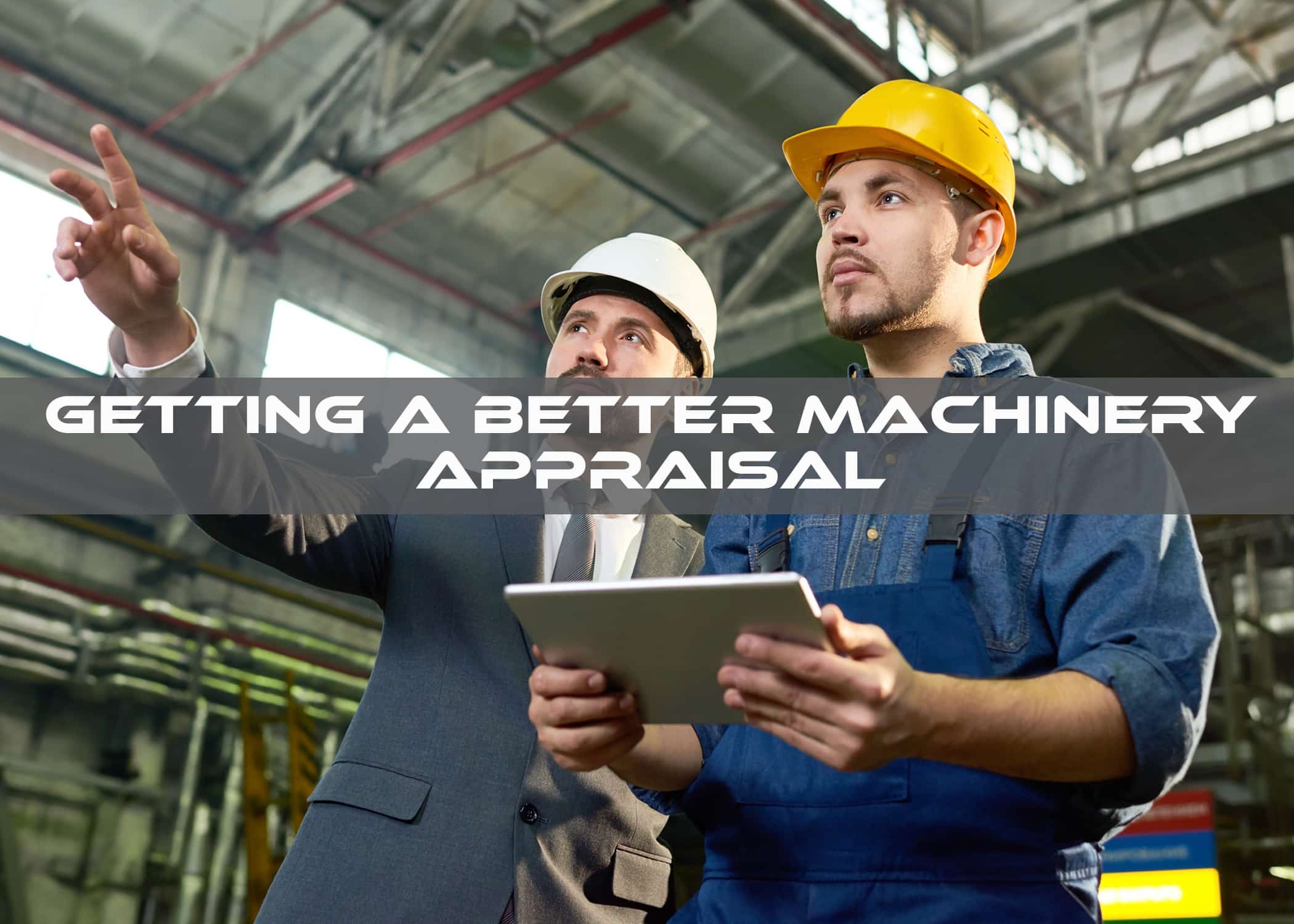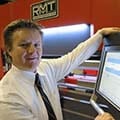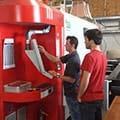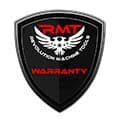One Shop’s Junk…
The catch-all corner of your shop is getting mighty full of old machines that you never power up anymore—it might just be time to call the salvage yard. Still, you hate to think of junking or even selling for scrap pieces of equipment that served you so well back in their day. The old proverb comes to mind: “One man’s trash is another man’s treasure.” Maybe—just maybe—these tired, antiquated machines still have some life left in them; some value left to give.
You could sell them online, but what would you even ask for them? What about an auction? Are they collectively worth enough to justify the cost of holding one? You need to know a credible figure that can be asked for each of them, and the most effective way of finding that out is to have them appraised.
Simply put, an appraisal is an estimation of an item’s value by an expert in that item’s specific field. Whether it’s a car, a house, or an old press brake, there are experienced appraisers in each industry who can give an item’s owner a realistic idea of what their property is currently worth on the market.
Whether you are planning to sell an old machine to make room for other equipment or just want a correct valuation of it for taxation, insurance, inheritance, or some other purpose, having it appraised by an expert will give you a reasonably good idea of its fair market value.
Two key ingredients that can safeguard the quality of your appraisal are making sure the appraiser has the right credentials and being involved as much as you can with the appraisal process.
Credentials, Credentials, Credentials
The employee at the used equipment dealer was asked by his boss to help him with an appraisal. At a previous job years before, the employee had accompanied the owner out on a couple of on-site appraisals, so he thought he had a pretty good idea of what would be involved now.
Instead of going with his new boss to the shop, however, he was sent alone. He did the best he could, noting make, model, and serial number of each of the machines and taking photos for reference. He compiled the info into a document complete with the images and presented it to his new boss so he could take over the project.
“Find out how much they are selling for online,” he was told instead. He proceeded to list ranges of prices for each item from what he could discover from different websites and online auctions. “Just take an average of the prices to get the value and type it up as a presentation,” he was then instructed. Having learned earlier in his career that the boss was always right—especially when he wasn’t—the employee did as he was directed.
Some accompanying paperwork was added that implied the new boss had some sort of credentials as an appraiser. He knew that his old boss had been certified as one, so he asked if the new boss had also. “I’ve been in the business for years,” the much younger new boss replied, “buying and selling used machines, so I know what they are worth.”
When asked if the new boss was going to go to the shop and look over the machines in person, the employee was told it wasn’t necessary. So, the employee dutifully prepared the presentation and mailed it off to the customer and later witnessed a hefty check for the appraisal work arrive back at the business. “The boss is always right,” the employee kept telling himself. “Always right.”
While it’s true that those who deal in used equipment for a period of years can get a fairly accurate sense of what a machine might sell for, even if they only see scant information about it, such knowledge doesn’t make them actual appraisers in the field. Their input can be valuable if you are looking for a ballpark figure, but if they are charging you for the service, make sure they are certified as an appraiser.
A true equipment appraiser will be certified by one or more professional organizations like the American Society of Appraisers (ASA) or the Association of Machinery & Equipment Appraisers (AMEA). To be certified by such an organization, the potential appraiser will have to have extensive experience in buying and selling equipment in the same marketplace that they will be appraising. They will have to undergo widespread testing to demonstrate that they can correctly appraise machines. They will have to commit to conducting themselves by a strict code of ethics. They may be required to pass a multi-hour course to be certified.
Once certified, the appraiser must then keep up with continuing education programs so they can stay abreast of new technology and new ways of determining the valuation of machinery and accessories. They may be required to regularly submit one of their appraisals to a committee of peers to ensure they are meeting the expected standards. Becoming an appraiser is not a one-time affair—it is an accreditation that must be renewed every few years for the individual to remain a “certified appraiser.”
Without the right credentials, the person assigning value to your equipment might not have the necessary experience, knowledge, or even integrity to give you a correct dollar figure.
Along with the appraiser’s certification, for your own piece of mind you should find out:
- How long they have been in the business.
- If they have previously performed appraisals like yours.
- What sort of reputation they have in the industry.
Take a Proactive Approach to Your Appraisal
You’ve hired the appraiser. Now there’s nothing to do but sit back and watch some online videos until he’s done, right? Wrong.
Having a machine appraised is a little different than taking your car to the shop for a tune-up. A mechanic will likely get quickly frustrated if you keep looking over his shoulder and asking questions about what he’s doing. After all, he’s the expert on what’s under your hood.
An equipment appraiser may be highly knowledgeable on the market value of specific pieces of equipment in various conditions, but you are the expert on what you have and how it has run in the past. The appraiser can look over a stationary machine or even see it operate for a quick demo under power, but you are the one who knows the ins and outs of its performance throughout its long service in your shop.
Being involved as the equipment owner in the appraisal process can provide information to the appraiser that they wouldn’t have otherwise, including things such as:
- What condition the machine was in when you bought it.
- What type of maintenance and repair work it has received over the years.
- How the machine was used and what types of jobs were regularly run on it.
- What types of upgrades it has had performed.
- What types of options and accessories it includes.
By participating with the appraisal, you will be able to answer any questions that the appraiser might have about the history of your machines, and you can likewise ask questions of them to learn how they are evaluating your property. With such a back-and-forth process, you may have the opportunity to correct misconceptions on their part about the condition of the equipment, leading to a more accurate appraisal.
Proceeding with the Appraiser Picking Process
When it comes time to start a search for an appraiser for your machines, a good method is to contact a professional association of appraisers and ask for a list of individuals that they’ve certified in your area.
You can also contact nearby used machine tool dealers and ask who they use when they hold an auction. Just be cautious if they offer you their own services for a fee and can’t present proof of any actual accreditation.
